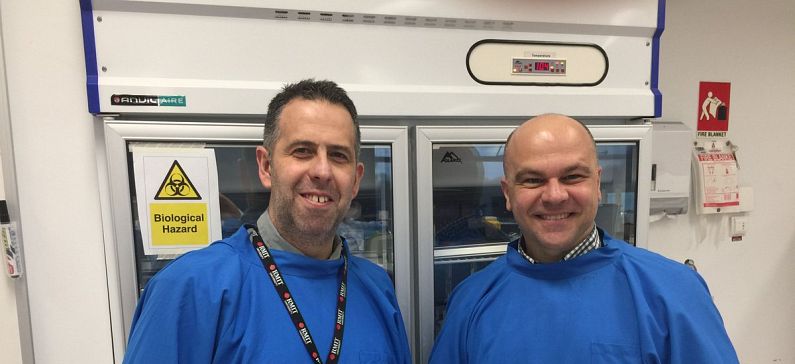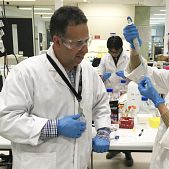
New research points to treatment breakthrough for viruses
RMIT University scientists in Melbourne, Australia, have led an international collaboration that potentially unlocks better treatment of viral diseases, including the flu and common cold. 2 Greek researchers participate in the study.
The results are published in the scientific and medical journal Nature Communications. Each year the flu virus sends 13,500 Australians to hospital and causes more than 3000 deaths among those aged over 50. The global burden is also staggering, with more than 5 million cases of infection annually with up to 10 per cent resulting in death.
The RMIT senior authors, Dr Stavros Selemidis (ARC Future Fellow) and Dr Eunice To (first author), collaborated with Professor Doug Brooks from University South Australia, Professor John O’Leary from Trinity College Dublin, Monash University’s Professor Christopher Porter and Associate Professor Ross Vlahos from RMIT University and other scientists and clinicians to investigate how viruses cause disease in humans.
The researchers discovered that a 1.5 billion-year-old cell biological process found in plants, fungi and mammals enhances viral disease in mice and highly likely also in humans. They identified a protein, Nox2 oxidase, that is activated by viruses, including influenza, rhinovirus (the common cold), dengue and HIV.
Once activated, Nox2 oxidase suppresses the body’s key antiviral reaction and its ability to fight and clear the viral infection, which in turn results in a stronger or more virulent disease in mice. The study also investigated a new prototype drug to treat these debilitating viral diseases.
The researchers found that the Nox2 oxidase protein activated by the viruses is located in a cell compartment called endosomes. They carefully modified a chemical that inhibits or restrains the activity of Nox2 oxidase. Their customised drug was found to be very effective at suppressing disease caused by influenza infection.
Selemidis, head of the Oxidant and Inflammation Biology Group within the Chronic Infectious and Inflammatory Diseases program at RMIT, said: “Current treatment strategies are limited as they specifically target circulating viruses and have either unknown or very little effect against new viruses that enter the human population. We have identified a protein of the immune system that contributes to the disease caused by flu viruses irrespective of their strain. We also developed a novel drug delivery system to target this protein, which drastically alleviated the burden of viral disease. The strength of this work is the multidisciplinary approach taken and the degree of collaboration. It includes researchers and clinicians from eight universities across Australia, the United States and Ireland. “This work attracted considerable interest at the NADPH Oxidase GORDON conference in the USA last year.”
Associate Professor Ross Vlahos from RMIT University (ARC Future Fellow) and head of the Oxidant and Inflammation Biology Group within the Chronic Infectious and Inflammatory Diseases program at RMIT Stavros Selemidis both gained international attention at the end of last year when their medical research into respiratory disease received $2.5 million in funding from the annual National Health and Medical Research Council (NHMRC) project grant round. Their work also attracted considerable interest at the NADPH Oxidase GORDON conference in the US as it has provided high-impact developments in the areas of chronic obstructive pulmonary disease, viral infections and cancer.











